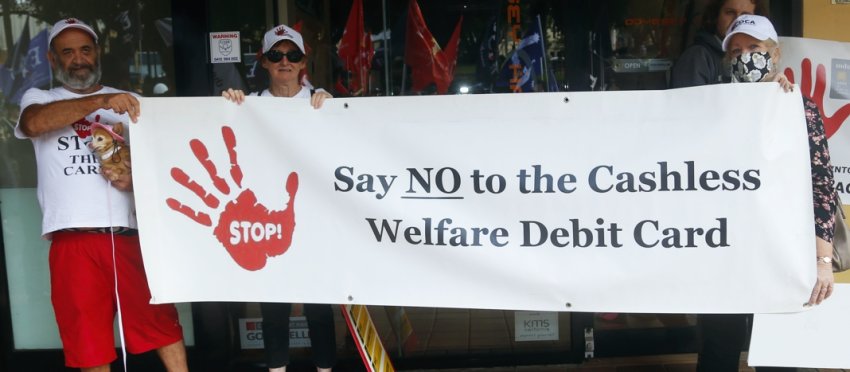
New federal Social Services minister Amanda Rishworth said on June 3 she would be “working with local communities on better local solutions” to the Cashless Debit Card (CDC). She was responding to a scathing report by the Australian National Audit Office (ANAO) on the CDC that said there was little evidence it was effective.
Rishworth said she had been briefed by the department and discussed terminating the card, which is run by Indue, a private company. “This was a clear commitment Labor took to the election. I will be delivering on our commitment,” she told the ABC on June 8.
Rishworth said “the Cashless Debit Card was a Liberal Party ideological obsession”. Labor’s criticisms have focused on the $170 million it costs Indue to administer. Rishworth said the sums could be better spent “on services locals need”.
Indue has strong links to the Liberal-National Coalition, meaning that “$170 million” was helping line the pockets of mates.
Cruelty and paternalism underpin the rationale for the CDC. Welfare recipients forced onto it end up losing control of up to 80% of their income.
The CDC was supposed to stop people from spending on drugs and gambling. But, in practice, the restrictions are greater: welfare recipients cannot spend at markets, op-shops, cash-only venues or make other second-hand purchases.
Bundaberg mother Kerryn Griffis told the ABC that the card “has massively negatively impacted mine and my kids’ lives". "It has been a nightmare being on the card. All the local landlords know the trouble tenants have with paying their rent on time so nobody wants to rent to someone on a card.”
Further, there is no evidence from the trial areas that the CDC reduced crime, alcoholism, drug use or gambling. In some areas, crime rates have risen. It is hardly surprising that some would turn to illegal avenues to secure cash when legal avenues are denied.
Labor’s promise during the election campaign to terminate the Indue card was popular and Rishworth’s comments since then that she is following this up has been well received.
But the card has not yet been terminated, and Labor is yet to say how it will. Indue’s contract ends in December, giving Labor a possibility to allow it to expire.
It is unclear what Rishworth means by her promise to work “with local communities on better local solutions”.
Almost 17,000 people were on the CDC as of February. No doubt the government has the power to significantly reduce this number very quickly even before the contract runs out or if is not terminated.
What about the Basic's Card?
There are also questions about the Basics Card (BC), run by Centrelink, and another form of income management. This was begun by the John Howard Coalition government when he legislated the Northern Territory “Intervention” in 2007. The Indue-run CDC began in 2016, when the Coalition government sought to extend income management to wider layers of welfare recipients.
Labor’s loudest promise refers to the privatised CDC, which literally profits from cruelty.
However, before the election, it also promised to make income management “voluntary” for those on the BC. More than 25,000 people were on the BC in April — almost all of whom are in the NT. Of those people, 90% were forced onto the card.
If Labor follows through on its promise to make the BC voluntary, it will make a big difference to the lives of more than 20,000 people — most of who are in remote NT Aboriginal communities.
It should be remembered, however, that Labor in government between 2007 and 2013 left the NT Intervention — including the Basics Card — in place.
Even though some claim to prefer income management, there is a danger in making the BC “voluntary”. If the income management infrastructure remains in place, the government will retain other means of coercing people on to an ostensibly voluntary card. It will also be easier for a future government to force more people onto income management.
Video: Stop the cashless welfare card, raise JobSeeker | Green Left Show #22. Green Left.
[Alex Bainbridge is member of Socialist Alliance national executive.]